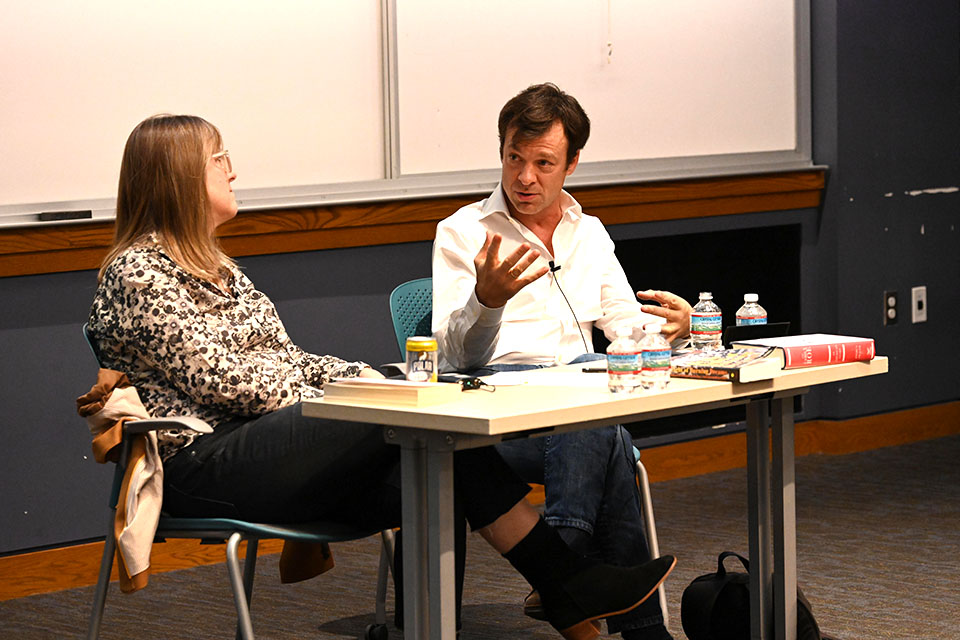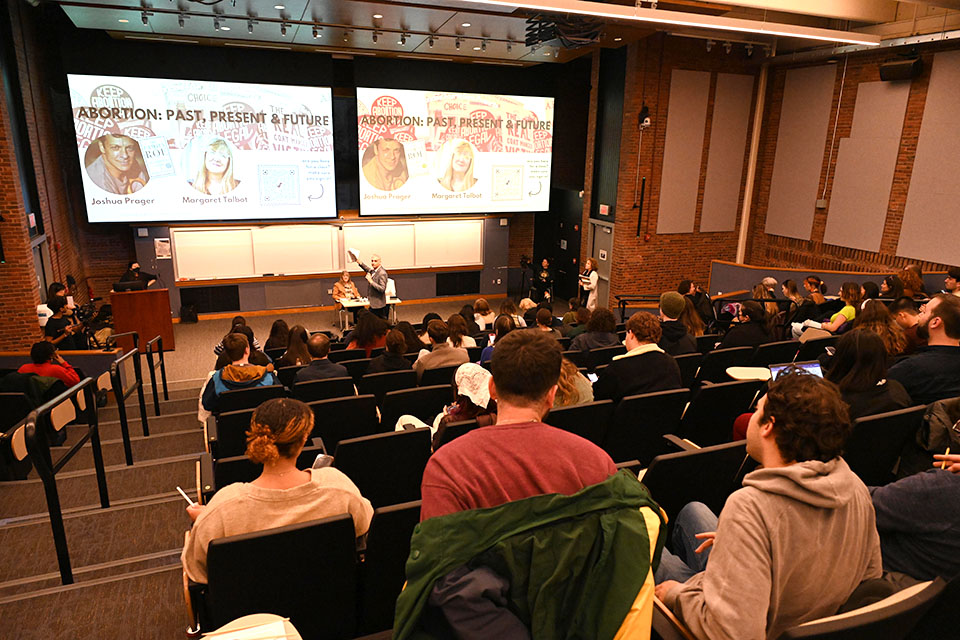Abortion: Past, Present & Future
Nov. 16, 2022

How have shame and secrecy affected conversations about abortion? Why is humanizing an issue so important when it comes to sensitive topics? Prominent journalists Margaret Talbot and Joshua Prager tackled these and other pressing questions during a “Brandeis Journalism Presents” forum on Nov. 16 in Schwartz Hall. Engaging with an auditorium full of wide-eyed Brandeis students, the two speakers spent the evening scrutinizing — through a journalistic lens — the country’s most polarizing issue of abortion.
Talbot, an award-winning staff writer for The New Yorker who has written extensively on reproductive rights, began the forum by weighing in on the role that abortion played in the midterm elections. “Abortion did turn out to be an issue that was voted on,” she said, “and journalism had a large effect on that.”
In his Pulitzer Prize-finalist book, "The Family Roe," Prager detailed the complex stories of the people at the center of the U.S. Supreme Court’s 1973 landmark Roe v. Wade decision legalizing abortion. For a long time, Prager said, pro-life politicians have been able to appeal to their base knowing that Roe was unlikely to be overturned. The midterm elections, he said, showed how much the political landscape has shifted since the high court overturned Roe in June. Many politicians, he said, “take the positions popular with voters, and then realize that they actually have to follow through.”
Fielding thoughtful questions from Brandeis students as well as moderators Ann Silvio and Neil Swidey — both Brandeis journalism professors — Talbot and Prager stressed the importance of telling the human stories at the center of the abortion issue. “One in four women will have an abortion,” Talbot said. “It is so common and so safe, yet is still so stigmatized. It is treated not as private, but as a secret.” She explained that privacy is more of a personal choice, while secrecy tends to hold more of a negative connotation. Because abortion stories tend to be “shrouded in secrecy,” she said, the public often doesn’t get the full picture.
Prager built off her idea, saying, “If you know someone who has had an abortion, you are more likely to be sympathetic towards someone else in their situation.” In the decade he spent researching his book, Prager said, he uncovered questionable behavior in both the prolife and prochoice movements. Although he acknowledged that he is personally pro-choice, he said it was important for him to share those unflattering aspects to both sides of the debate.
The overturning of Roe, Prager said, “has made people engaged, and that is a good thing. We should all be engaged and pay attention.” He once again addressed the future journalists in the room. “It is amazing to say, but it's true, you can help influence the national conversation, and together, we can make it a more honest one.”
Story by Brooke Reed.
